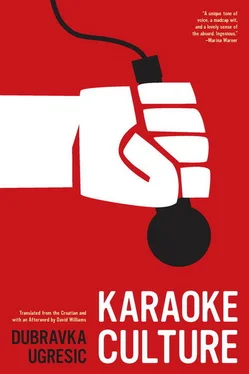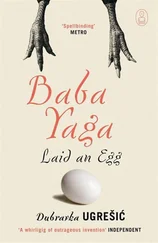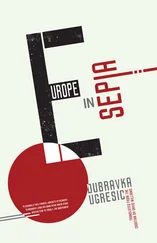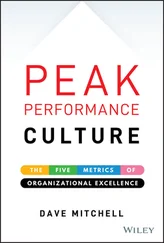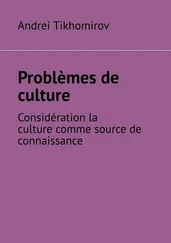Dubravka Ugresic - Karaoke Culture
Здесь есть возможность читать онлайн «Dubravka Ugresic - Karaoke Culture» весь текст электронной книги совершенно бесплатно (целиком полную версию без сокращений). В некоторых случаях можно слушать аудио, скачать через торрент в формате fb2 и присутствует краткое содержание. Год выпуска: 2011, Издательство: Open Letter, Жанр: Публицистика, на английском языке. Описание произведения, (предисловие) а так же отзывы посетителей доступны на портале библиотеки ЛибКат.
- Название:Karaoke Culture
- Автор:
- Издательство:Open Letter
- Жанр:
- Год:2011
- ISBN:нет данных
- Рейтинг книги:4 / 5. Голосов: 1
-
Избранное:Добавить в избранное
- Отзывы:
-
Ваша оценка:
- 80
- 1
- 2
- 3
- 4
- 5
Karaoke Culture: краткое содержание, описание и аннотация
Предлагаем к чтению аннотацию, описание, краткое содержание или предисловие (зависит от того, что написал сам автор книги «Karaoke Culture»). Если вы не нашли необходимую информацию о книге — напишите в комментариях, мы постараемся отыскать её.
Karaoke Culture — читать онлайн бесплатно полную книгу (весь текст) целиком
Ниже представлен текст книги, разбитый по страницам. Система сохранения места последней прочитанной страницы, позволяет с удобством читать онлайн бесплатно книгу «Karaoke Culture», без необходимости каждый раз заново искать на чём Вы остановились. Поставьте закладку, и сможете в любой момент перейти на страницу, на которой закончили чтение.
Интервал:
Закладка:
8.
In this summer of 2010 Ugrešić presented a version of the essay “The Elusive Substance of the Archive” as the closing keynote address at an academic conference in the United Kingdom. Backed by small armies of footnotes and appeals to the authority of literary history and literary theory, we scholars (and those of us impersonating scholars) had hammered the theme of “Archive” for almost a week. At the conclusion of Ugrešić’s address the applause continued well beyond that required by courtesy. In three-quarters of an hour, the reflections of a novelist seemed to contain more truth about the subject than we had collectively managed, with the help of Benjamin, Joyce, Borges, and Sebald, in days. These lines hit hardest: “We walk through the world with our memory sticks around our necks, each of us with our own homepage, each of us with an archive stored on the web. We, are everywhere. . And the more voluminous the archive that trails us, the less of ourselves there seems to be. . We don’t communicate with each other. . Oh so modern, we put things on YouTube so anyone can gawk at them. We used to send out ghostly signals of our existence, and now we make fireworks out of our lives. We enjoy the orgy of being, twittering, buying new toys, iPhones and iPads, and all the while our hunger just grows and grows. We wear memory sticks around our necks, having of course first made copies. The memory stick is our celestial sarcophagus, our soul, our capsule, our soul in a capsule.”
9.
A visit to the “Foreigner’s Office” ( Auslandsamt ) in Berlin is a bowel-voiding experience, more like a Battle Royale fixed by the invisible hand of fear than a tranquilized wander through IKEA. My game began on a January morning at 5:30 A.M. The Office is located in a semi-industrial part of Wedding, a Berlin neighborhood that has all the social problems of a Parisian banlieue —with all that word implies about migration and poverty — yet none of the architectural violence. Were it not so poor, Wedding would be pretty. A Bulgarian friend — an experienced player — had given me an insider tip on the unwritten rules of the game. The first and most important rule, she declared, is to be in line outside the building no later than 6:15 A.M. The second is to have memorized the building’s complex floor plan, so when doors open just before 7:00 A.M. you’ll get to the necessary section among the top dozen finishers. If you don’t manage to pull a waiting number by 7:10 A.M., you won’t be among the day’s competitors. The only consolation is that — at least at this stage — disqualification is only temporary. You can get up at 5:30 A.M. and compete again tomorrow.
10.
The floor plan of the Berlin Foreigner’s Office offers a fascinating lesson in German (and European) geopolitics. Asylum seekers are quarantined in a separate building; illegal “new entrants” to Germany aren’t allowed above the ground floor (i.e. they’re non-starters in the game who never even get to level one); Turks have a spacious floor to themselves; alone together, former Yugoslavs (minus the upgraded Slovenians) get to renew old acquaintances on a floor of their own; the Soviet Union, minus the three upgraded Baltic states (replaced by Thailand, Vietnam, and Taiwan!), is reassembled in Berlin exile — Eastern Europe is certainly not lost; while a wild mix of countries, from Indonesia to the United Arab Emirates to Somalia, mingle in an exclusively Muslim brotherhood. Even the grouping together of the entire Americas, Oceania, Israel, much of wealthier Asia, and central and southern Africa has its own “leftover” logic.
11.
With the dulcet inflections of my New Zealand accent, my German is gentle on local ears, and a Danish bloodline on my maternal grandfather’s side has granted me a fortunate “northern” complexion. When longer than a couple of inches, my hair resembles sheep’s wool from my homeland, and so I keep it closely-shorn. Even the most distinctive piece of clothing I own — calf-height sheepskin-lined winter boots — make me look more like an Austrian high-country farmer than a “real” foreigner. I mean, it’s not like I’m a Romanian Gypsy in Sarkozy’s France, I think — I’m not even a Romanian Gypsy in Romania. But sitting in the waiting room, I’m convinced that disqualification looms. Maybe they have it on file that twelve years ago I got caught without a ticket on the Munich S-Bahn? And that, like all unreliable foreigners, I gave a false address? And what of my history with minibars?
12.
The setting has changed, but the smell of anxiety in the room is one I know well. I remember it from over a decade ago when traveling the Gastarbeiter bus routes between Sarajevo and Munich. I’ll never forget the silence at every westwards border crossing, a silence that could hang in the air for over an hour, which is often how long it took for Croatian, Slovenian, Austrian, or German border guards to enter the bus. The delay seemed like a carefully calibrated fear multiplier — and it worked. On a bleak January morning in Berlin, the same delay does its work on me. Like the narrators of “Battle Royale” and “The Fly,” I go back over the details that have gotten me to the waiting room, hoping to exonerate myself from blame while simultaneously “stitching” them together. My parents may have taken me away from my first homeland of Fiji at a young age, but the rest I did on my own. I sometimes think of my willing departure for Bosnia in my early twenties as “an irreparable mistake committed at the age of ignorance” (a Kundera line from my internal repository). But the “thread” continues to this day in Berlin, as I, neither Ossie nor Wessie , working on the translation of this collection, find myself in so many of its scenarios.
13.
Most often we talk about certain musicians providing the soundtracks to our lives, or of friends who act as mirrors in which we see our own changing reflections. Whether in the sadness of Bosnia, the museum and karaoke-city of Berlin, or lost in the fibre optic Google galaxy, worried that its speed is wrecking my capacity to watch Andrei Rublev from beginning to end, Dubravka Ugrešić’s writing has been with me for some time now. From former Yugoslavs at “home” and in the diasporic cities of Western Europe, North America, and Australasia, to inquisitive New England college students and their well-educated parents, to the global metropolitan literati dreaming of having the guts to write like her, Ugrešić’s writing undoubtedly accompanies a mass of unnamed others. The essays in Karaoke Culture are new postcards sent from a space both inside and outside the global village. They are written by an author who when making jokes makes sure she has her turn on the receiving end, when mourning or moralizing questions her right to do so, and who when serving up satiric indictments has her own name appear among the accused. In a less anonymous and less liquid epoch, these things might have been called the responsibility of the writer.
Berlin, February 2011
AUTHOR BIO
Dubravka Ugresic is a writer of novels ( Baba Yaga Laid An Egg, The Ministry of Pain ), short story collections ( Lend Me Your Character, In the Jaws of Life ) and books of essays ( Nobody’s Home, Thank You for Not Reading, The Culture of Lies ). Born in the former Yugoslavia, Ugresic took a firm anti-nationalistic stand when war broke out in 1991, and she was proclaimed a “traitor,” a “public enemy,” and a “witch,” and was exposed to harsh and persistent media harassment. As a result, she left Croatia in 1993 and currently lives in Amsterdam.
Читать дальшеИнтервал:
Закладка:
Похожие книги на «Karaoke Culture»
Представляем Вашему вниманию похожие книги на «Karaoke Culture» списком для выбора. Мы отобрали схожую по названию и смыслу литературу в надежде предоставить читателям больше вариантов отыскать новые, интересные, ещё непрочитанные произведения.
Обсуждение, отзывы о книге «Karaoke Culture» и просто собственные мнения читателей. Оставьте ваши комментарии, напишите, что Вы думаете о произведении, его смысле или главных героях. Укажите что конкретно понравилось, а что нет, и почему Вы так считаете.
